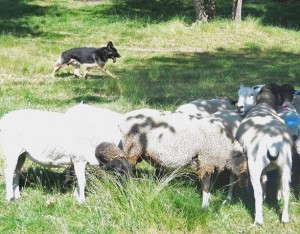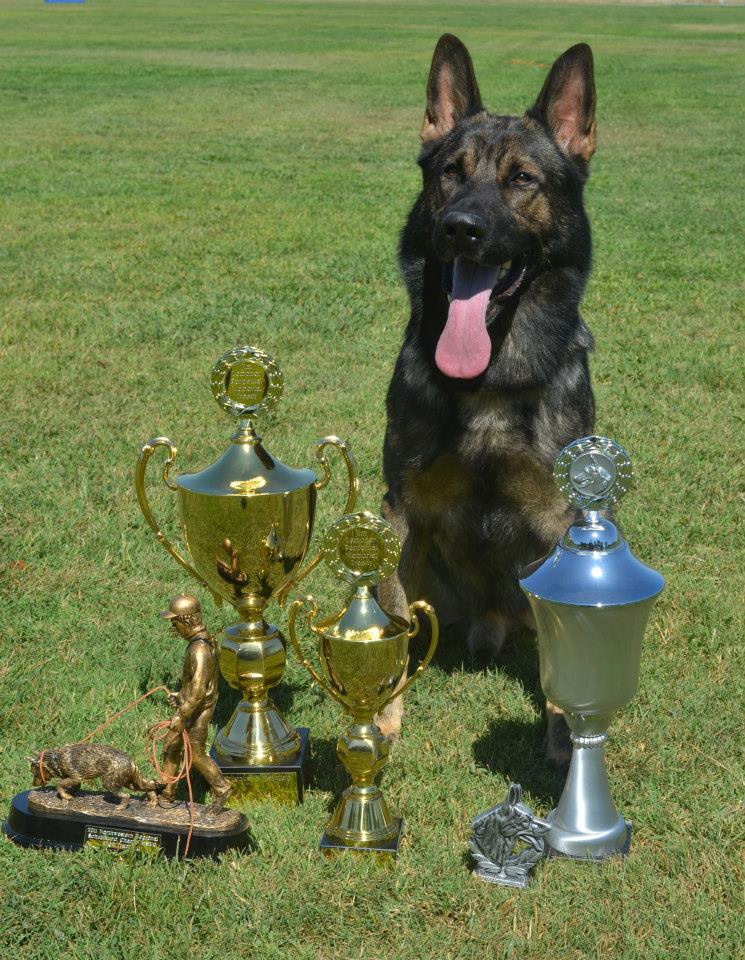Pitfalls of Large-Scale Breeders
 Last blog we discussed two similar groups of breeders in the “puppy producing business”: commercial breeders and large-scale breeders. This type of breeder uses puppy sales for their primary source of income, which means they must produce large numbers of puppies every year in order to support themselves financially. They may use titled, health-certified breeding dogs, but there are still several pitfalls associated with purchasing a puppy from a large-scale breeding operation.
Last blog we discussed two similar groups of breeders in the “puppy producing business”: commercial breeders and large-scale breeders. This type of breeder uses puppy sales for their primary source of income, which means they must produce large numbers of puppies every year in order to support themselves financially. They may use titled, health-certified breeding dogs, but there are still several pitfalls associated with purchasing a puppy from a large-scale breeding operation.
Four Pitfalls of Large-Scale Breeding Operations
1. There is often very little support from the breeder.
If something goes wrong or if you are having difficulty with your puppy, this type of breeder is notorious for pretending that you no longer exist, or that they never received your phone calls or emails. Once the money has changed hands, they no longer concern themselves with what is happening with their puppies. Breeding rights will be the only time this type of breeder contacts you, or under threat of a lawsuit because they sold a “lemon” puppy. For some folks, this type of arrangement is just fine. But for many people new to the breed, having the breeder’s support is necessary!
2. These breeders produce quantity, not quality.
Because selling puppies is their main income, the goal is to mass-produce and market as many puppies as they can in the year. A few of their dogs may turn out to be rockstars that compete in working dog sport, but this is only a handful of the hundreds of dogs they have produced every year. Most of their dogs are sold off and just disappear among the homes of people scattered across the U.S.
Why can breeding for quantity be a bad thing? With the large amount of puppies that are produced by this breeder every year, it becomes near impossible for the breeder to see how their dogs produce, to see what the puppies are like, and to make any positive changes to their breeding program. There is a lack of feedback on the true quality of their program. It also forces the breeder to “move” puppies quickly; puppies become inventory that must be sold off to anyone willing to pay for them. Mass marketing to offset the mass production becomes a priority.
For good breeders, quality, not quantity, is the goal. This can be seen in the litters of many good breeders. From only a few litters, good breeders may produce dogs that excel in multiple venues: obedience, agility, IPO/Schutzhund, Search and Rescue, herding, family companions, and more. The dogs are handled and titled by their owners, not by professional handlers paid to put titles on the dogs. The quality of a good breeder’s program becomes obvious when we compare the number of puppies produced to the number of dogs from their breeding working successfully in various working fields. The percentage is quite high for good breeders, and very low for most large-scale breeders (and next to zero for backyard breeders!).
3. There is little regard for how the dog’s pedigrees match up, and whether their breedings will improve the breed.
The goal is to sell puppies, instead of make good German Shepherd Dogs. Thus, dogs are bred with little concern for their individual temperament, work ethic, personality, and potential health and temperament issues behind them in the pedigree. The same male will be used for many of their females, without regard for whether or not he is the best choice for that particular female. No one male can be the best match for all of a breeder’s females! Top dogs will be bred to other top dogs, sold on their big names and accomplishments, without concern for if this top stud truly is the best match for their female. The puppies may be good, the puppies may be bad, the puppies may be great, the puppies may be mediocre. As long as they sell, it doesn’t matter.
4. There is no relationship with the dogs.
Most large scale breeders do not work their dogs, and have little interaction with most of them. They may employ a full-time staff that cares for the dogs and puppies for them. They farm out their females on co-ownerships for other people to raise until they are of breeding age. They import already titled dogs from Germany, or export their own dogs to be titled by professionals in Europe before coming back for breeding. The dog WILL be titled because a handler is being paid to do it. But the breeders themselves are not involved with the raising and training of their dogs, beyond deciding which animals to breed together and how to market their puppies. How, then, are these large-scale breeders making informed breeding decisions without this knowledge of who and what their dogs really are, where their strong points are, where their weaknesses are, etc.?
Good breeding is about making informed breeding decisions. The more knowledge one has about their individual dogs, the better able they are to find the right dog to complement them, and to improve upon their dog’s weaknesses (and not just structural weaknesses, but temperament and working ability as well).
Can someone purchase a great puppy from a large-scale breeder? Sure. It does happen. But for every “great puppy” produced, how many mediocre or poor quality puppies are produced and sold off to unsuspecting buyers?
A Few Good Breeders
There are a small number of good large-scale breeders out there. How can you tell the difference? While they may still have a large number of breeding females and produce large numbers of puppies per year, they also meet the following criteria:
 1. The breeder is actively training, trialing, and competing with the dogs they import, and with the dogs they are producing from these imports.
1. The breeder is actively training, trialing, and competing with the dogs they import, and with the dogs they are producing from these imports.
They do not just breed, but train and handle the dogs themselves, too. They are members of a local Schutzhund club, and actively train at this club with their dogs.
2. They produce dogs who are  actively competing with their owners in Schutzhund/IPO, herding, and other dog sports.
actively competing with their owners in Schutzhund/IPO, herding, and other dog sports.
A search of the kennel name will reveal trial results, and help verify that the puppies they are producing are actually accomplishing something with their owners. The strength of a breeder’s breeding program is demonstrated through what they have produced, and a good breeder (including a good large-scale breeder) produces a good number of dogs  that excel in various venues. Additionally, these dogs are being titled by their owners, not by a professional handler who is being paid to put a title on a dog so it can be bred.
that excel in various venues. Additionally, these dogs are being titled by their owners, not by a professional handler who is being paid to put a title on a dog so it can be bred.
3. They are well-known and respected in the working dog world for their experience, expertise, and strength of their breeding program.
They may be a large-scale breeder, but they have a good reputation among the German Shepherd world. They typically have many years of experience in the breed, and an in-depth knowledge of the German Shepherd Dog and its breed history.
4. They are very supportive of their puppy owners.
They offer a lifetime of support for their puppies, and are willing to answer questions and offer training or health advice as needed.
Given the sheer number of puppies produced for German Shepherd Dogs alone in the U.S., it becomes quite evident that there are many “breeders” out there producing German Shepherd puppies. However, a very small percentage of those “breeders” are actually good, ethical breeders who invest their time, money, effort, and experience into producing quality dogs that are excellent examples of the the GSD breed. It is up to the puppy buyer to thoroughly educate themselves not only on the German Shepherd breed, but on the qualities and characteristics of a good breeder.

